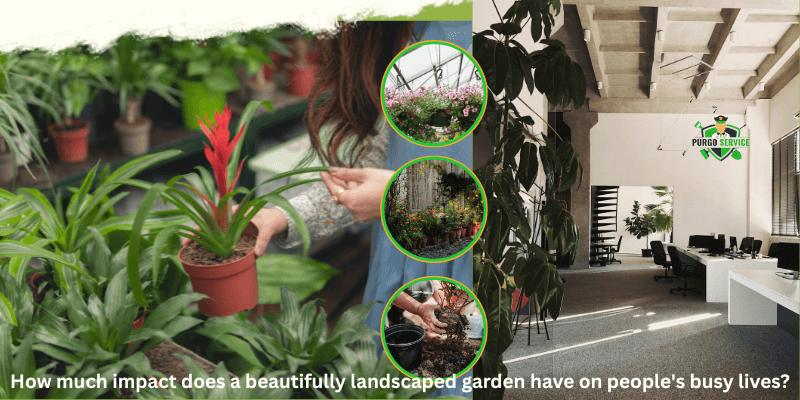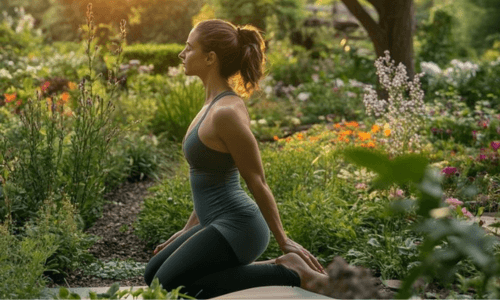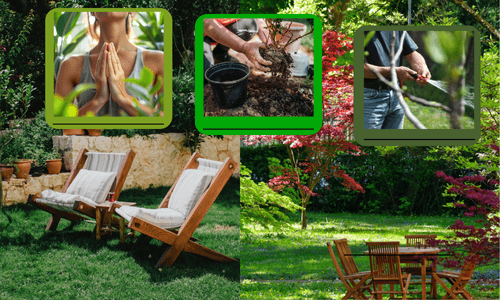How much impact does a beautifully landscaped garden have on people’s busy lives?

In today’s fast-paced world, where the demands of work, family, and digital connectivity rarely pause, finding moments of peace and restoration can feel elusive. Yet, a beautifully landscaped garden—whether a sprawling backyard oasis or a modest balcony retreat—offers more than just visual pleasure. It provides profound benefits for mental, physical, and emotional well-being, serving as a sanctuary that can dramatically enhance quality of life, especially for those leading busy lives. They offer solace, promote mental and physical well-being, strengthen social bonds, and reconnect us to the natural world—all essential in today’s fast-paced society. Stepping into a lush, well-maintained garden immediately engages the senses: the vibrant colors of blooming flowers, the soothing sound of rustling leaves, the scent of fresh earth, and the gentle touch of a breeze. Scientific studies consistently show that spending time in a garden—whether tending to plants or simply enjoying the surroundings—can significantly reduce symptoms of stress, anxiety, and depression. Even short periods spent in a garden can lead to noticeable improvements in mental health, with benefits increasing the more regularly one engages with the space. This sensory immersion acts as a natural antidote to stress, providing an immediate sense of calm and presence.
Waking up in the morning and taking a walk through a beautifully landscaped flower and fruit garden is a great way to refresh your mind and body with the fresh morning air.
Special features of the garden and some other explanatory information necessary for human life.
Enhancing Mental Health and Emotional Well-being
The benefits extend well beyond temporary relaxation. Beautiful gardens can have long-term positive effects on mental health. Immersing oneself in a thoughtfully designed landscape can alleviate symptoms of anxiety and depression. The colors, textures, and scents of plants, combined with natural sunlight and fresh air, work together to create a therapeutic environment. Multiple studies have demonstrated that spending time in a garden—whether actively gardening or simply relaxing—significantly boosts emotional wellbeing. Research from the University of Minnesota found that gardening at home is associated with emotional benefits comparable to those gained from biking or walking. The physical act of tending to plants, combined with the sensory experience of being surrounded by greenery, provides a natural form of stress relief—akin to a mini therapy session delivered by nature itself.
Physical Health Benefits

A landscaped garden encourages physical activity, even if it’s just light exercise like walking, bending, or lifting. This movement, combined with time spent outdoors in a landscaped garden, can improve overall well-being, increase vitamin D levels from sunlight, and improve sleep quality. And the fresh air that comes with walking in a garden refreshes the mind. The presence of edible plants or herbs can also promote healthy eating habits, as fresh fruit is readily available. A well-designed garden encourages movement. Whether it’s a morning walk along a winding path, an afternoon of pruning, or stretching out in the sun for some light yoga, landscaped gardens naturally invite physical activity. Moreover, those who maintain their own gardens often experience the benefits of light to moderate exercise.
While the mental and emotional benefits are profound, gardens also encourage physical activity.
Encouraging Movement:
Tasks like planting, weeding, watering, and harvesting require movement, which can be a gentle but effective form of exercise. This physical engagement is especially important for those whose work or daily routines are largely sedentary.
Boosting Immunity and Wellbeing:
Exposure to green spaces has been linked to improved immune function and reduced risk of chronic diseases. The act of gardening itself, combined with time spent outdoors, can contribute to overall health and vitality.
Gardening as Mindful Therapy

Gardening is a form of eco therapy—a therapeutic approach that harnesses the healing power of nature. The sensory experience of handling soil, observing plant growth, and engaging with the natural world can ground individuals, helping them feel more present and centered.
Reduction in Depression and Anxiety:
Gardening has been used as an intervention in clinical settings to decrease depression scores, particularly among older adults. The combination of physical activity, exposure to sunlight (and the resulting boost in vitamin D), and the satisfaction of nurturing living things contributes to these positive outcomes.
Enhanced Self-Esteem and Accomplishment:
Watching a garden flourish under your care provides a tangible sense of accomplishment. This nurturing process can boost self-esteem and reinforce a sense of purpose, which is especially valuable for those who may feel overwhelmed or disconnected in their busy routines. It’s not just us saying this, www.calm.com is saying it too.
Gardens and Long-Term Wellbeing

Sustained Health Benefits
The positive effects of gardens are not fleeting. Research indicates that moving to a home with more greenery can have lasting improvements on mental health, with benefits persisting even after several years. Regular contact with gardens and green spaces is associated with lower rates of psychological distress, depression, and mood disorders.
Comparable to Socioeconomic Advantages
Remarkably, the health and wellbeing benefits of spending time in a garden are comparable to the advantages enjoyed by people living in the wealthiest neighborhoods. This finding underscores the potential of gardens to level the playing field in terms of health and happiness, regardless of socioeconomic status.
Conclusion
In this fast-paced world, a beautifully landscaped garden is no longer a luxury. It’s a necessity – a form of self-care, a tool for mental health and a way to improve your lifestyle. It’s a place where our brains can recharge, our bodies can relax and our spirits can expand. For those of us who lead busy lives, a garden is not just an escape from reality. It’s a gentle reminder of what real life is like.
So the next time you feel overwhelmed, consider stepping outside. Breathe in the scent of flowers, feel the sunshine on your skin, listen to the rustling of leaves. The world may not stop turning – but for a moment, you can.
A beautifully landscaped garden is not just an aesthetic luxury – it’s a vital source of mental, emotional and physical wellbeing. In the midst of busy lives, gardens provide a haven where stress melts away, moods lift and connections with nature and others are forged – both powerful.
By gardening or simply spending time in a thoughtfully designed outdoor space, people can experience profound improvements in health, happiness, and overall quality of life. In busy lives, gardening and planting beautiful flowers can be time-consuming. In cases where proper gardening lacks thoughtful organization, Purgo Service is able to provide a well-maintained garden and garden plants by their experienced gardeners.
